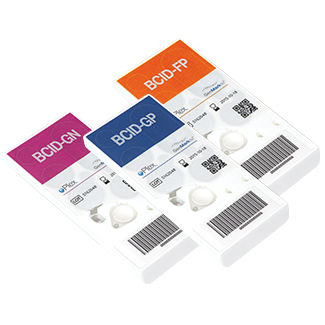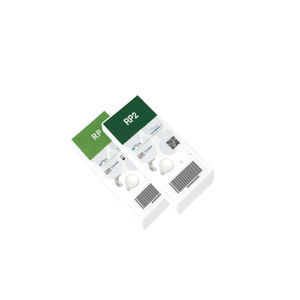
- Laboratory
- Laboratory medicine
- Sepsis test kit
- GenMark Diagnostics
Sepsis test kit BCIDCOVID-19blood culturelead
Add to favorites
Compare this product
Characteristics
- Applications
- sepsis, COVID-19
- Application field
- blood culture
- Tested parameter
- lead
- Micro-organism
- virus, bacteria, fungi
- Sample type
- clinical, blood
Description
GenMark’s ePlex® Blood Culture Identification (BCID) Panels provide broad coverage of organisms that can lead to sepsis along with their resistance genes. This broad coverage means that about 95% of currently identified bloodstream infections can be detected early with the ePlex BCID Panels, compared to other panels that detect significantly fewer sepsis-causing bacteria and fungi.
COVID-19 grew to pandemic proportions in 2020, with global case numbers approaching 100M by the end of the year. Although most cases are mild, some patients are at higher risk, with an overall mortality rate of >2%. The mortality rate of sepsis can be as high as 75% depending on the agent causing infection and because the clinical presentation of COVID-19 and sepsis can be similar, antimicrobial use has increased during the pandemic further driving antimicrobial resistance. Rapid detection or rule-out of bacterial or fungal co-infections and secondary infections can help reduce unnecessary or inadequate antimicrobial therapy.
It is estimated that 20-30% of patients receive ineffective initial antibiotic therapy and the mortality rate for these patients increases up to 7.6% for every hour effective antibiotics are delayed.
The ePlex BCID Panels aid clinicians in the identification of bacterial and fungal organisms as well as antibiotic resistance genes within approximately 1.5 hours of blood culture bottle positivity, allowing treatment decisions to occur days earlier than with conventional methods. Unique ePlex solutions, like the ePlex Templated Comments Module, can help to improve antimicrobial stewardship and optimize patient care.
Catalogs
ePLEX BCID PANEL
55 Pages
Related Searches
- Assay kit
- Blood assay kit
- Infectious disease detection kit
- Respiratory infection test kit
- Clinical assay kit
- COVID-19 detection kit
- Laboratory software
- Reporting software
- Automated software
- Diagnostic software
- Hospital software
- POC reader
- Treatment software
- Coronavirus detection kit
- Data management software
- Hematology test kit
- Influenza A assay kit
- Influenza B assay kit
- Blood POC reader
- Interpretation software
*Prices are pre-tax. They exclude delivery charges and customs duties and do not include additional charges for installation or activation options. Prices are indicative only and may vary by country, with changes to the cost of raw materials and exchange rates.



